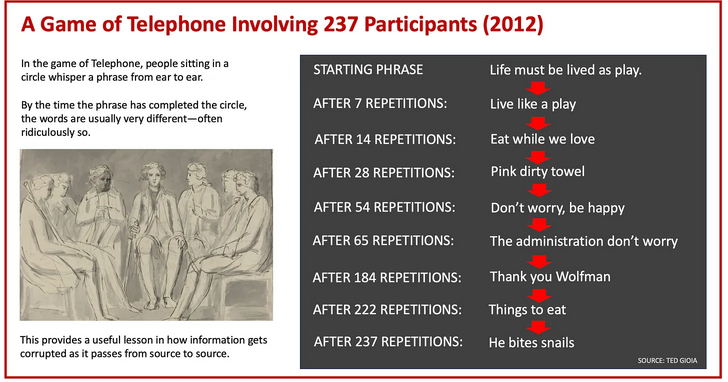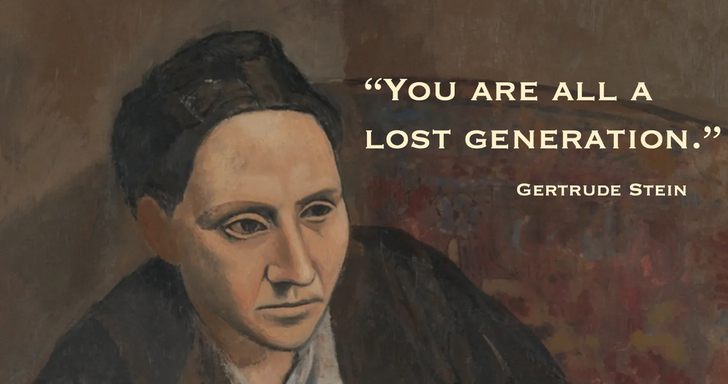Ted Gioia explains how you can tell if you’re living in what he calls a “doom loop”:
You might have played an old party game called Telephone — in which people sit in a circle, and whisper a simple phrase from ear to ear.
By the time the information has moved around the entire circle, the words have changed. That’s because people mishear and misinterpret.
So when a game of Telephone was played in 2012 with 237 individuals, the starting phrase was: “Life must be lived by play” (a quote from Plato). But when it reached the end of the circle, the words had turned into: “He bites snails”.
Here’s how it progressed:
In other instances, people have started with the phrase “Only the good die young” and end up with “The three Vikings visit Christ”. Or “Today the library is hot” somehow morphs into “Sharon Stone is my girlfriend”.
Perhaps a degree of wish fulfillment enters into the game. Or as my mother used to say: “People hear what they want to hear”.
There’s a technical term for this process. It’s called generation loss.
It has nothing to do with a lost generation — which is how Gertrude Stein described the Jazz Age. She famously told Ernest Hemingway: “You are all a lost generation”.
I’m not talking about those kinds of generations.
The generation loss we’re dealing with here refers to deteriorating data quality when a signal is repeated over and over again.
Each time it’s generated, the information gets a little more corrupted.
And it’s not just hearing that leads us astray. You can also measure generation loss if you make a photocopy of a photocopy. Each time you do it, the quality of the image gets worse. If you do it enough times, you can’t recognize what was in the original.
Even digital data — which is supposedly copied and pasted with perfection — deteriorates with each repetition.
Photos that are shared from account to account on Instagram get worse over time. In one experiment, a photo that was copied and reposted 90 times gradually turned into an unrecognizable blur.





